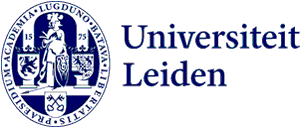
Psychology Connected on making mistakes in science: 'Admitting errors can actually benefit your reputation'
How do we get better at detecting research errors? And how do we ensure that we no longer see those errors as evidence of our inability, but as keys to better and more reliable research? Scientists offer advice at the third Psychology Connected.
'Science is complex, and so we make mistakes,' begins Anna van Duijvenvoorde, the afternoon's moderator. With that, she immediately dismisses the misconception that often hinders scientists: that one day we can do science without error, but all we have to do is discover how. That a world in which all tests are valid and reliable, data are collected and interpreted perfectly, and papers are never retracted, is within reach. But, Van Duijvenvoorde stresses, 'making mistakes in science is inevitable.' Then why does it remain so difficult to stand up for our mistakes?

Mistakes are nauseating
Perhaps for a simple reason: it doesn't feel right. Finding out that we have made a mistake, and then admitting it to colleagues, is physically uncomfortable. The panelists attest to this when Van Duijvenvoorde asks "what does it actually feel like, to make a mistake like that?
'Making mistakes almost physically hurts,' says Serge Rombouts, who researches how to improve the methodology of brain scans and is a board member of the Institute of Psychology. 'Sometimes it can make you nauseous, that feeling of disappointing yourself and others.' But the best remedy, he says, is still to go to your supervisor or colleagues and say, 'I overlooked something.' In fact, he himself had to do as a young researcher. 'That's enormously scary,' he admits, 'but you'll find that people often respond positively to it, that they appreciate your honesty.'
That fear of being scolded by your colleagues is even proven to be unfounded, says Anna van 't Veer. She researches scientific integrity and what methods contribute to an open, transparent research process. 'Researchers are afraid that coming out for their mistakes will damage their reputation, but this is not the case. It can even have a positive effect; it can make people trust you more, because it means that you put the importance of truth-telling above your own ego.'
Self-correcting system
But admitting mistakes is not just an individual responsibility; we must create a system in which mistakes are normal. Van 't Veer points to other studies, showing that relatively few citizens expect scientists themselves to take responsibility for their mistakes, but a large proportion of those citizens do trust science as a whole. 'Trust in science thus seems to rest on the self-correcting ability of the system,' says Van 't Veer.
Therefore, the system must also be designed in such a way that errors are more quickly uncovered, and thus corrected more quickly. 'For example, we can deploy software designed on the fact that people make mistakes, and detect errors in data faster.' Or we can be more conscious of the meaning we give to some words, Van 't Veer suggests: 'The word 'correction' still often has a negative connotation; we need to change this. If you see that a paper has been corrected, it means that it has improved.'
Comfortable with being wrong
A scientific practice in which everyone admits their mistakes without hesitation, are we almost there yet? "We are on the right track," both agree. Van 't Veer and colleague Eiko Fried, for example, will soon make a round of all sections to take a moment to reflect on issues such as transparency, equality, and how to deal with mistakes. 'As Open Science becomes the norm, we will simply discover the mistakes that were always here more often, so it is good to reflect on how we deal with them,' says Van 't Veer.
'And yes, that is painful and also scary. But above all, it pays off a lot, according to Rombouts, because you learn from it. 'So thank people for it when they point out a mistake to you,' he says. And, Van't Veer: 'Learn to be comfortable with the fact that you can always be wrong, and stay alert to that.' How? 'By providing an open and safe atmosphere in which this conversation can take place. For example, by talking about it with your colleagues in the central hall of the faculty. And with that, a drink in hand can certainly help sometimes.

The next Psychology Connected is on Thursday 15 June 2023 on 16H and will be about artifical intelligence. Keep an eye on the event page for the latest info.
Missed the previous edition on war and peace? Read the report here.










